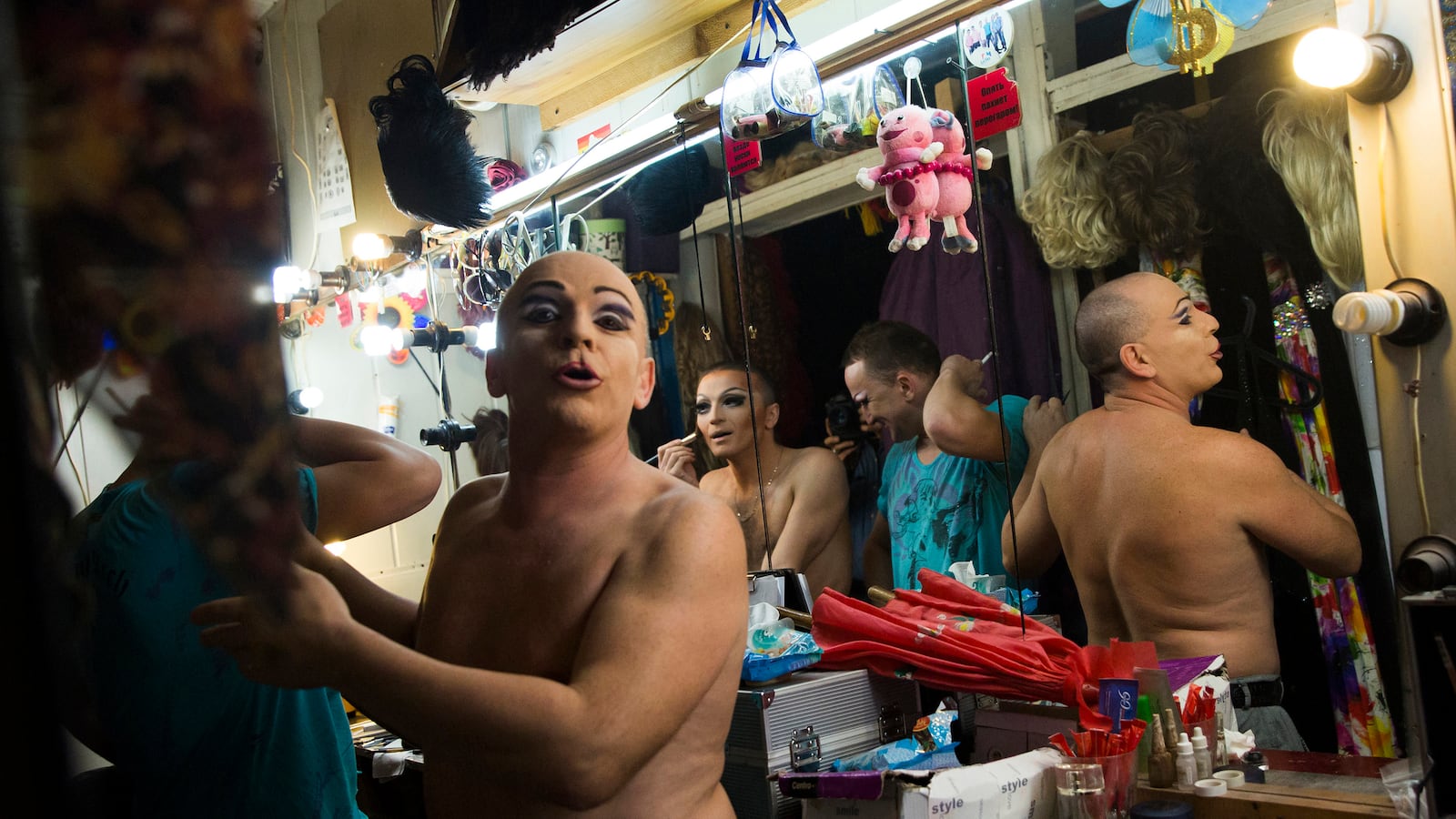SOCHI, Russia — Most Russian gay couples hide their love and many have given up struggling for their rights. But still the pressure on them grows.
Last week, members of the lower house of the Russian parliament, or Duma, considered a new bill banning homosexuals from public displays of affection. They would be fined for kissing in the street or holding hands on the subway. Homosexuality, the bill’s authors contended, is a Western ideology planted in the minds of Russia’s young people in order to reduce the country’s population.
But even before the Duma voted on the homophobic bill, and before any police began to grab gays for holding hands or kissing in public, many homosexuals withdrew deeper into hiding, away from the eyes of strangers. Fewer and fewer people are brave enough to demonstrate in the streets with rainbow flags. They’ve seen the violent attacks and beatings inflicted on dozens of LGBT activists all across the country. In the provinces, it’s rare to find any place where gays can congregate openly.
But the city of Sochi, the Black Sea resort that was the home of the 2014 Winter Olympics, was until recently something of an exception. It was generally less homophobic, and it had at least one night spot, the Kabaret Mayak, that openly positioned itself as a gay club. It offered great food, friendly service and some of best variety shows in the country.
Now, that’s over. After more than a decade, the gay couple who own the club, Andrei Tanichev and Roman Kochagov, have decided to move their establishment to a hotel restaurant and change its famous status. “Our new bar is not going to be a gay club, but it will stay tolerant and welcome guests with any sexual orientation,” Kochagov told The Daily Beast.
“The country is less tolerant in general,” said Kochagov, reflecting on the Duma debate about PDAs. “Russia is not ready, our society is not ready, to see it; in Spain gay couples can be seen kissing everywhere, but not here.”
One of Kabaret Mayak’s fans, Lena, a beautiful, cosmopolitan 30-year-old lesbian, told The Daily Beast that she preferred to conduct her personal life behind closed doors. How about kisses under Sochi’s palm trees, or under the stars on the Black Sea shore? Lena shook her head, firmly rejecting the idea: “I kiss in my room,” she said.
In practice, it hasn’t been the police so much as neighors and passing strangers who have made daily life miserable for gays.
Anton Krasovsky, a well-known journalist, is one of a handful of LGBT activists left in Moscow. Once, hooligans attacked Krasovsky and his partner Nikita when they were walking along New Arbat, one of the most touristy streets in Moscow.
"Another time our neighbor spotted how Nikita, who thought that nobody could see us, hugged me by the elevator of our apartment building. She started screaming, so the entire house could hear her: 'Faggots, I am going to call cops!'"
Meduza media asked the author of the new bill discussed at the Duma, Deputy Ivan Nikitchuk, what he thought of Hillary Clinton’s statement that gay rights are human rights. “Listen, we do not need to talk about human rights!” he said. Gays, he insisted, were “sick and insane people.”
Last month a club for intellectuals in Sochi watched a British movie, “Pride,” about gay activists helping miners during the ferocious strike of 1984.
During a discussion somebody from the audience exclaimed in disgust: “How can you play these sort of movies here!” Most of the spectators mocked the comment for being homophobic, uncool and ignorant.
Homosexuals are not the only people who’ve been tempted to give up the fight for their rights: 77 percent of Russians say protesting on the streets in support of their rights is unlikely to bring about any changes, according to a recent poll by the Levada Center.
At the annual anti-fascist marches in Moscow and St. Petersburg earlier this week, in memory of lawyer Stanislav Markelov and journalist Anastasia Baburova killed seven years ago, a few gay activists joined in.
An Orthodox Church activist called authorities to try to prevent the march because of LGBT participation, according to blog reports. In the end, a few hundred people walked in the center of Moscow with banners and placards condemning fascism, denouncing threats by Chechen leader Ramzan Kadyrov to kill liberal public figures, and deploring homophobia.
“Not many came out with rainbow flags, but people did join us, and carried our banners,” said Elena Kostyuchenko, a Moscow journalist and LGBT activist, in a Facebook post. “A young man and a woman walked next to me and every time we passed by a darkened archway, they walked in front of me for my protection.”
In the end, the bill in the Duma failed to pass. Perhaps the many closeted homosexuals in Russia’s business and political elite frustrated the legislation. But there is no guarantee it will not resurface.
“The state’s job is to protect the rights of minorities; but in the case of the gay minority, the state inspires hostility and hatred,” Krasovsky said.






